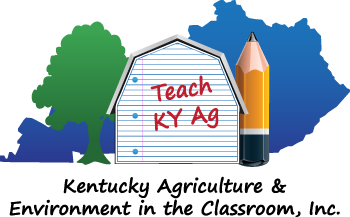Fourth Grade ELA
Reading Standards for Informational Texts
Books for group reading are suggested in many lessons. Teachers/educators may ask questions to evaluate student understanding of the texts.
RI.4.1 - Refer to details and examples in a text when explaining what the text says explicitly and when drawing inferences from the text.
RI.4.2 - Analyze how the central ideas are reflected in a text, and cite relevant implicit and explicit evidence from the text.
RI.4.3 - Explain the individuals, events, procedures, ideas, or concepts in a historical, scientific, or technical text, including what happened and why, based on specific information over the course of a text.
RI.4.4 - Determine the meaning of general academic and domain-specific words or phrases in a grade-level text, and describe and explain how those words and phrases shape meaning.
RI.4.5 - Describe the overall structure in a text or part of the text the author uses to organize the events, ideas, concepts, or information.
RI.4.6 - Compare/contrast a firsthand and secondhand account of the same event or topic.
RI.4.7 - Interpret information presented in print and non-print formats and explain how the information contributes to an understanding of the text in which it appears.
RI.4.8 - Explain how an author uses reasons and evidence to support particular claims the author makes in a text.
RI.4.9 - Integrate information from two or more texts on the same theme or topic.
RI.4.10 - By the end of the year, flexibly use a variety of comprehension strategies (i.e., questioning, monitoring, visualizing, inferencing, summarizing, synthesizing, using prior knowledge, determining importance) to read, comprehend and analyze grade-level appropriate, complex informational texts independently and proficiently.
Composition Standards
C.4.1 - Compose opinion pieces, using writing and digital resources, on topics or texts, supporting an author’s perspective with reasons and information. (NOTE: Students must have the opportunity throughout the year to utilize digital resources, but not every writing experience must utilize those digital resources.)
See the Kentucky Farms Feed Me Passport for Grades 2+. There are many writing prompts to meet these standards. Request passports. Learn more about the virtual field trips.
C.4.2 - Compose informative and/or explanatory texts using writing and digital resources to examine a topic and convey ideas and information clearly. (NOTE: Students must have the opportunity throughout the year to utilize digital resources, but not every writing experience must utilize those digital resources.)
C.4.3 - Compose narratives, using writing and digital resources, to develop real or imagined experiences or multiple events or ideas using effective techniques, descriptive details, and clear sequences. (NOTE: Students must have the opportunity throughout the year to utilize digital resources, but not every writing experience must utilize those digital resources.)
C.4.4 - With some guidance and support from adults, use digital resources to create and publish products as well as to interact and collaborate with others.
C.4.5 - Conduct short research projects that build knowledge through the investigation of different aspects of a topic.
C.4.6 - Summarize relevant information from experiences or gather relevant information from various print and digital sources; take notes, categorize information, and provide a list of sources.
C.4.7 - Compose routinely over extended time frames and shorter time frames for a variety of tasks, purposes, and audiences.
Language Standards
L.4.1 - When writing or speaking, demonstrate command of the conventions of standard English grammar and usage.
Use relative pronouns and relative adverbs.
Use progressive verb tenses.
Use modal auxiliaries to convey various conditions, such as can, may, and must.
Order adjectives within sentences according to conventional patterns.
Use prepositional phrases.
Produce complete sentences, recognizing and correcting inappropriate fragments and run-ons.
Use frequently confused words, such as to, too, two; there, their, they’re.
L.4.2 - When writing:
Demonstrate appropriate use of capitalization rules.
Use commas and quotation marks to indicate direct speech and quotations for a text.
Use a comma before a coordinating conjunction in a compound sentence.
Consult reference materials as needed to check and correct spellings.
L.4.3 - Use knowledge of language and its conventions when writing, speaking, reading or listening.
Choose words and phrases to convey ideas precisely.
Choose punctuation for effect.
Differentiate between formal and informal discourse patterns based on context.
L.4.4 - Determine or clarify the meaning of unknown and multiple-meaning words and phrases based on grade 4 reading and content, choosing flexibly from an array of strategies.
Use context (e.g., definitions, examples or restatements in text) as a clue to the meaning of a word or phrase.
Use common affixes and roots as clues to the meaning of a word.
Consult print and digital reference materials to find the pronunciation, and determine or clarity the precise meaning of keywords and phrases.
Acquire and use accurately grade-appropriate general academic and domain-specific words and phrases, including those that signal precise actions and that are basic to a particular topic.
L.4.5 - Demonstrate understanding of figurative language, word relationships and nuances in word meanings.
Explain the meaning of simple similes and metaphors in context.
Recognize and explain the meaning of common idioms, adages and proverbs.
Demonstrate understanding of words by relating them to their synonyms and antonyms.
